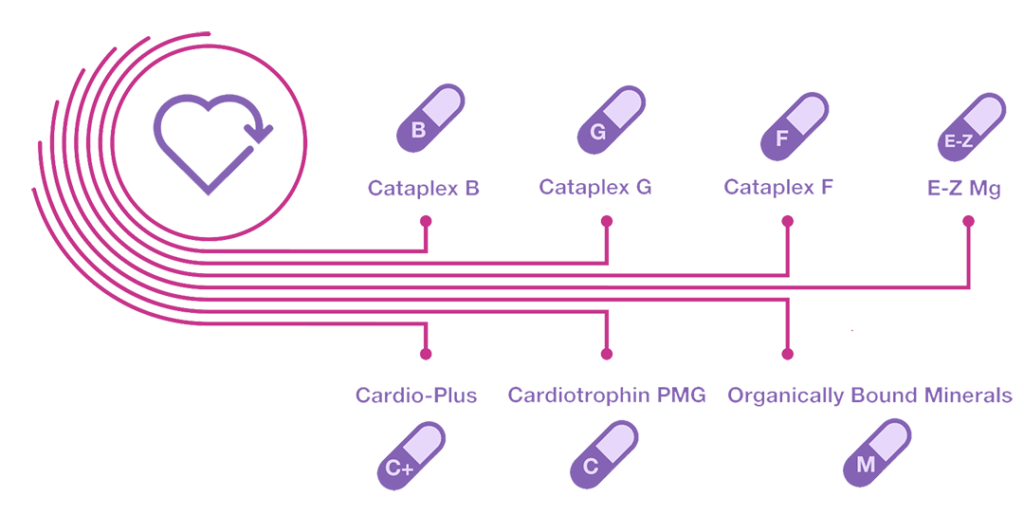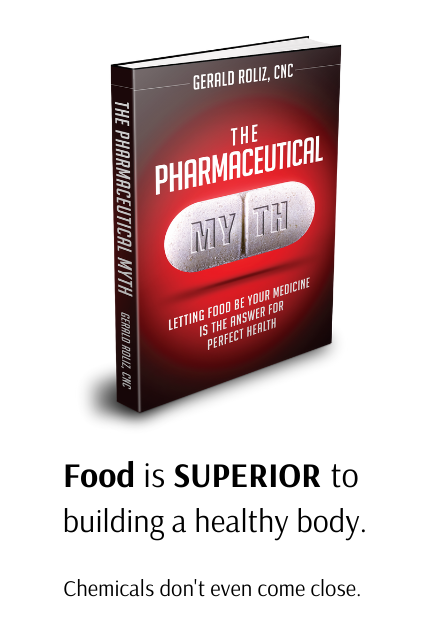Heart Sound Recorder
Your Heart is the Most Important Muscle in the Body. Every day, your heart beats 100,000 times, sending 2,000 gallons of blood flowing through your body.
The Heart Sound Recorder is a computer-based, general wellness monitor which uses the principles of auscultation to observe heart sounds. The heart’s reaction to stressors, (such as chemical, nutritional and emotional), can be measured using this type of device. Certain types of heart stressor can be monitored by seeing the rate, rhythm, and tone of the heart cycle.
Why the Heart Sound Recorder (HSR)?
The Heart Sound Recorder (HSR) was developed in 1937 by Dr. Royal Lee, founder of Standard Process. Dr. Lee recognized the significance of the heart as a diagnostic indicator when he designed the Endocardiograph, an earlier version of the HSR. This cardiovascular assessment tool allows the heart sounds to be graphed and provide us with valuable information:
- Whether your heart function is optimal

- If your body’s chemistry is balanced
- If your body’s nutritional deficiencies are causing stress on your heart
- Overall motor nerve support and blood viscosity
- specific nutritional support your body is requiring
The HSR is a non-invasive, painless assessment that provides valuable, recognizable readouts—and you will receive a thorough explanation of what we’re seeing in your results. We will take the time to explain, in the most understandable terms possible, what your heart’s Rate, Rhythm and Tone are saying about your nutrition and overall health. We will also build you a personalized Designed Clinical Nutrition program based upon the Heart Sound Recorder results and any other clinical concerns.
In contrast, the electrocardiograph (EKG) records only the surface electrical impulses as it moves through the nerves of the heart tissue. The EKG primarily indicates if the heart tissue has undergone any trauma or permanent damage on an electrical basis. The EKG does not analyze valvular function, muscle efficiency, motor nerve function and blood viscosity. The EKG’s sole purpose is to diagnose disease, while the HSR looks at your heart function to analyze nutrient deficiency, improve health and longevity.
The HSR provides a picture of heart sounds and analyzes heart function on a graph. We can measure the heart sound as a reflection of balanced body chemistry, nutrition, and overall function of the body’s systems.
The HSR analysis can be affected by many of our systems, including circulatory, adrenals, kidney function, liver and gallbladder. Heart function and sound is also affected by vitamins, minerals, essential fatty acids, and toxins. It is important to emphasize that HSR reflects the efficiency and deficiencies of heart function.
The HSR, can help detect dysfunctions and deficiencies, thereby helping you make appropriate lifestyle and dietary changes to improve health and wellness.
Rate, Rhythm, Tone
Three Key Indicators of Heart Health and Function
To function optimally, it is vital for the heart to have the proper nutrients to maintain its correct rate, rhythm, and tone. The Heart Sound Recorder is a general wellness cardiac monitor with a specialized microphone that is placed over each of the four valves of the heart to display specific sounds and movement.
Rate
Your Autonomic Nervous System (ANS) controls the RATE at which your heart beats. The heart rate of your heart is how fast or slow your heart beats. Optimal resting heart rate is 60-80 beats per minutes. Several bodily functions are directed by your autonomic nervous system such as digestion, heart rate, and blood pressure. These functions are strongly influenced by diet, vitamins, minerals, and other lifestyle factors.
One side of your nervous system, sympathetic, controls your “fight or flight” response and can accelerate your heart rate. Meanwhile, the parasympathetic nervous system manages your “rest and digest” response and can slow your heart rat. You need to have a healthy balance between both nervous systems.
Using another valuable tool, Heart Rate Variability test, in our office we are also able to determine your personal balance or imbalance between parasympathetic and sympathetic nervous systems.
Rhythm
The rhythm of your heart is the “lub dub” sound, which pertains to how regular your heart beats. The “lub” sound is associated with S1 and “dub” (S2) should beat in a steady and consistent rhythm. The sounds of the heart should have a specific work to rest ratio. Your heart should be resting twice as long as it is working. Observations using the Heart Sound Recorder can be made to see if your heart is working too hard, or not working hard enough.
The rhythm of your heart can be supported with proper nutrition and essential nutrients, which will help balance heart sounds and function.
Tone
The tone of your heart refers to the strength of the ventricle contractions. This includes the opening and closing of the heart chambers. Using the Heart Sound Recorder we can observe the tone of your heart based on the height and width of the “lub dub” sounds.
What You Can Learn About your Heart from the Heart Sound Recorder:
- Heart Rate – Is it too fast, too slow, or, just right?
- Heart Rhythm – Is it consistently steady? Is your heart resting twice as long as it’s working?
- Heart Tone – Is it STRONG enough with no signs of weakness? Or is there need for improvement?
- Autonomic Nervous System Balance – Are you constantly “hitting the gas pedal” or “riding the brakes”?
These are used to determine the health of your parasympathetic and sympathetic nervous systems. With this information, it becomes possible to create an individualized nutrition plan, give supplement recommendations and give exercise suggestions in order to improve your quality of life.”
Standard Process: Natural Supplements to Improve Heart Health

Supplements For Supporting Heart Health
Cataplex B
Supports physical and nervous system health. Contains B-complex vitamins to support a healthy heart, muscle action and energy production in all cells.
- Helps maintain healthy homocysteine levels
- Supports a healthy heart and proven beneficial for patients with A-fin and arryhtmia.
Cataplex G
Maintains nerve health and provides a calming effect on the nervous system. Supports brain and nervous system functions, as well as the body’s metabolism.
- Encourages healthy parasympathetic nerve function
Cardiotrophin PMG
Includes bovine heart PMG extract to support heart muscle function. Provides a unique profile of mineral, nucleotides, and peptides.
- Helps support the heat and cardiovascular system
- Strengthens heart tissue for individuals with weak heart muscle
Cardio-Plus
Supports the cardiovascular system (multi-vitamin for the heart) and provides ingredients with antioxidant activity.
- Supports healthy blood flow and can help individuals with High Blood Pressure
- Supports increased oxygen demand during exercise
Cataplex F Tablets
Supports the body’s inflammatory response function. Provides omega-3 fatty acids from plants and calcium for healthy heart.
- Contains iodine for thyroid support
- Helps improve calcium absorption to maintain a healthy heart
- Promotes healthy skin and hair
Organically Bound Minerals
Encourages healthy enzyme function and promotes healthy connective tissue. Helps maintain proper cellular energy production and provides ingredients with antioxidant activity.
- Contains iodine from alfafa and kelp to assist with proper thyroid function
- Supports nervous system health for patients with unbalanced Autonomic Nervous System.
Order Organically Bound Minerals HERE
E-Z Mg
Plant-based, naturally occurring multiform magnesium (Mg), supports inadequate dietary magnesium intake. Made from two key whole-food ingredients: Swiss chard (beet leaf) and buckwheat- both grown on sustainable and certified organic farm.




